Fall into ML: Autumn School and Conference on Machine Learning Held at HSE University
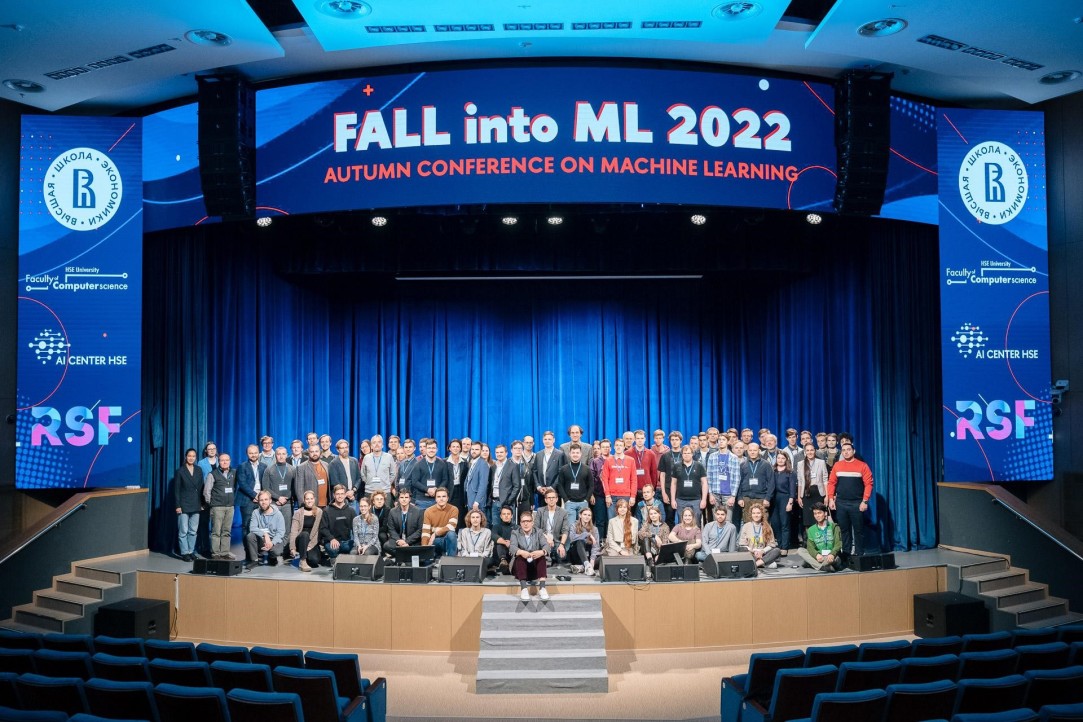
On November 1st-3rd, 2022 the International Laboratory of Stochastic Algorithms and High-Dimensional Inference of the HSE Faculty of Computer Science and the Laboratory of Methods for Big Data Analysis with the support of HSE AI Centre and the Russian Science Foundation organized the first autumn school and conference on artificial intelligence ‘Fall into ML’. The new format of the event included a school for students and young researchers.
The following mini-courses and lectures were delivered by leading researchers from HSE University and Skoltech:
Optimal Transport and Generative modeling based on stochastic processes (Evgeny Burnaev, Skoltech)
Posterior sampling and Bayesian bootstrap: sample complexity and regret bounds (Alexey Naumov, HSE University)
Tensors and machine learning (Ivan Oseledets, Skoltech)
Introduction to diffusion models (Dmitry Vetrov, HSE University)
The conference was held at the HSE Cultural Centre, with leading Russian scientists in the field of artificial intelligence and machine learning, authors of articles at A* level conferences and in leading world-class journals delivering more than 20 reports on current areas of AI research in six sections related to different areas of machine learning and related topics.
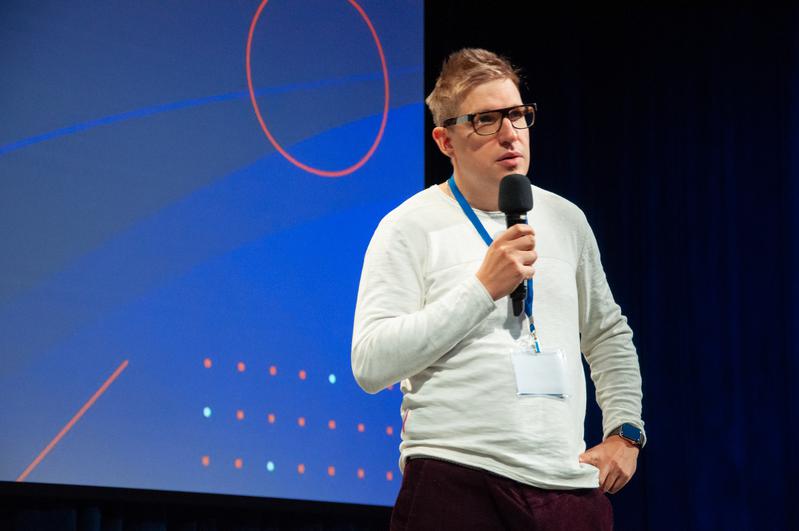
‘The ‘Fall into ML’ school and conference is a unique event: We managed to bring together the best representatives of Russian science in the field of artificial intelligence and machine learning. The format of the event is similar to a real A* level conference: mini-courses, short reports and a large poster session. All reports and posters were based on articles presented at the conference in 2021-2022 (ICML, NeurIPS, COLT, ICLR, ACL, etc). I hope that the Fall into ML school and conference will become an annual event!’
During the event, awards were given to the winners of the fifth anniversary olympiad ‘Mathematics of Machine Learning’, which was jointly organized by the HSE and Skoltech. First-degree certificates were awarded to Ivan Safonov (HSE Faculty of Computer Sciences), Ekaterina Fadeeva (St. Petersburg State University) and Altan Erdnigor (HSE Faculty of Mathematics). All laureates were enrolled on the Master's programme ‘Math of Machine Learning’ without the need for entrance exams.
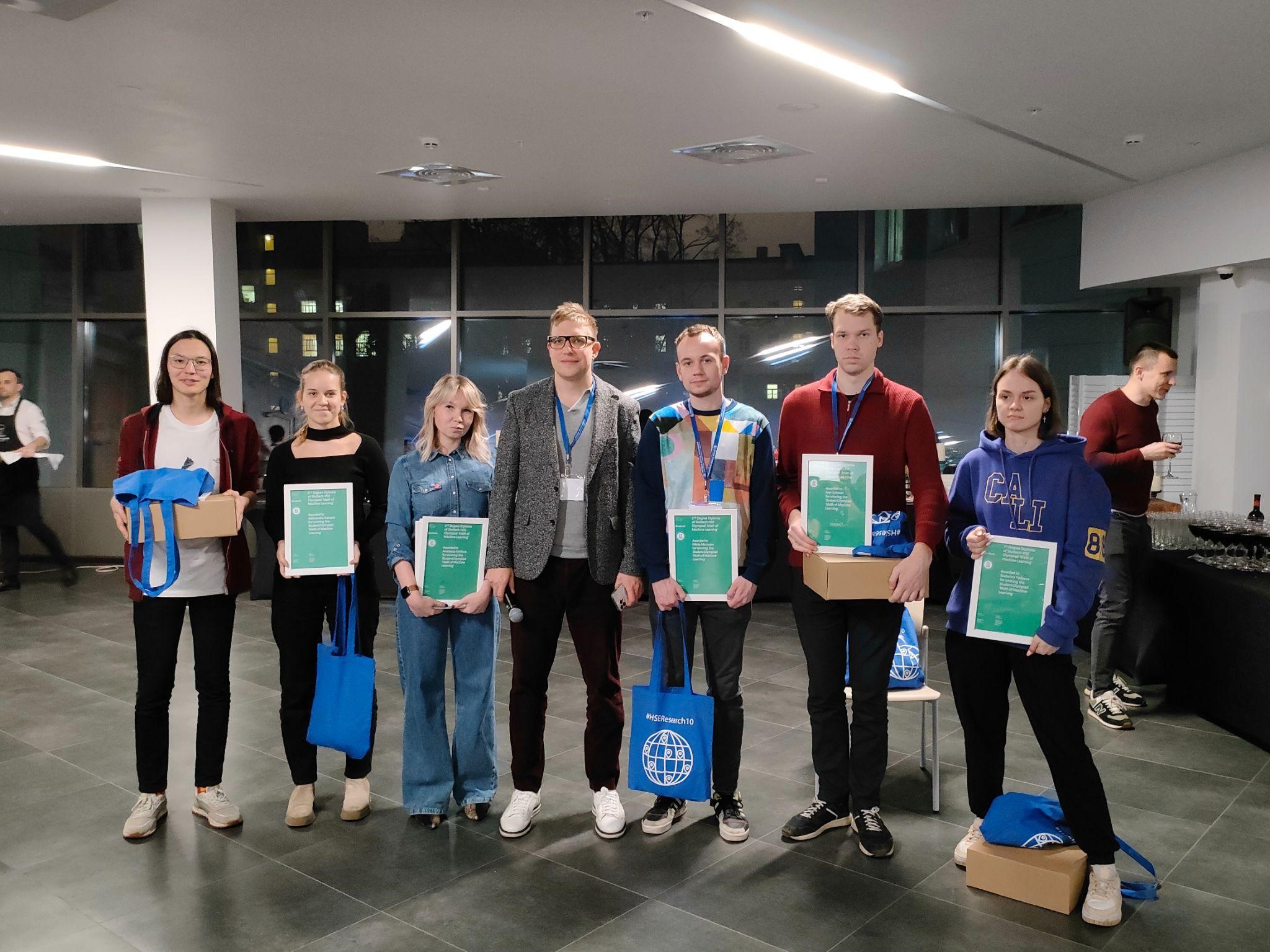
There was also a round table meeting, dedicated to the interaction of universities with industrial partners, forms of cooperation between universities aimed at solving problems of the business community, and prospects for long-term research. HSE staff from various departments, representatives of the ‘Digital Economy’, the National Centre for the Development of Artificial Intelligence under the Government of the Russian Federation, the Research Institute ‘Gaseconomica’, Bauman Moscow State Technical University, the Center for Artificial Intelligence, as well as the ‘Yandex’, ‘Renaissance Credit’, ‘SIBUR Digital’ all took part in the event, which was held at Durasov House.
‘The interaction of industrial customers with leading Russian scientists is always relevant,’ says Anna Kozyreva, Director of the project office of the HSE AI Centre. ‘Both scientists and commercial companies understand the importance of practical orientation in the conducted fundamental research. That is why the dialogue between scientists and industry representatives, who discuss relevant ideas for possible cooperation, is always interesting.’
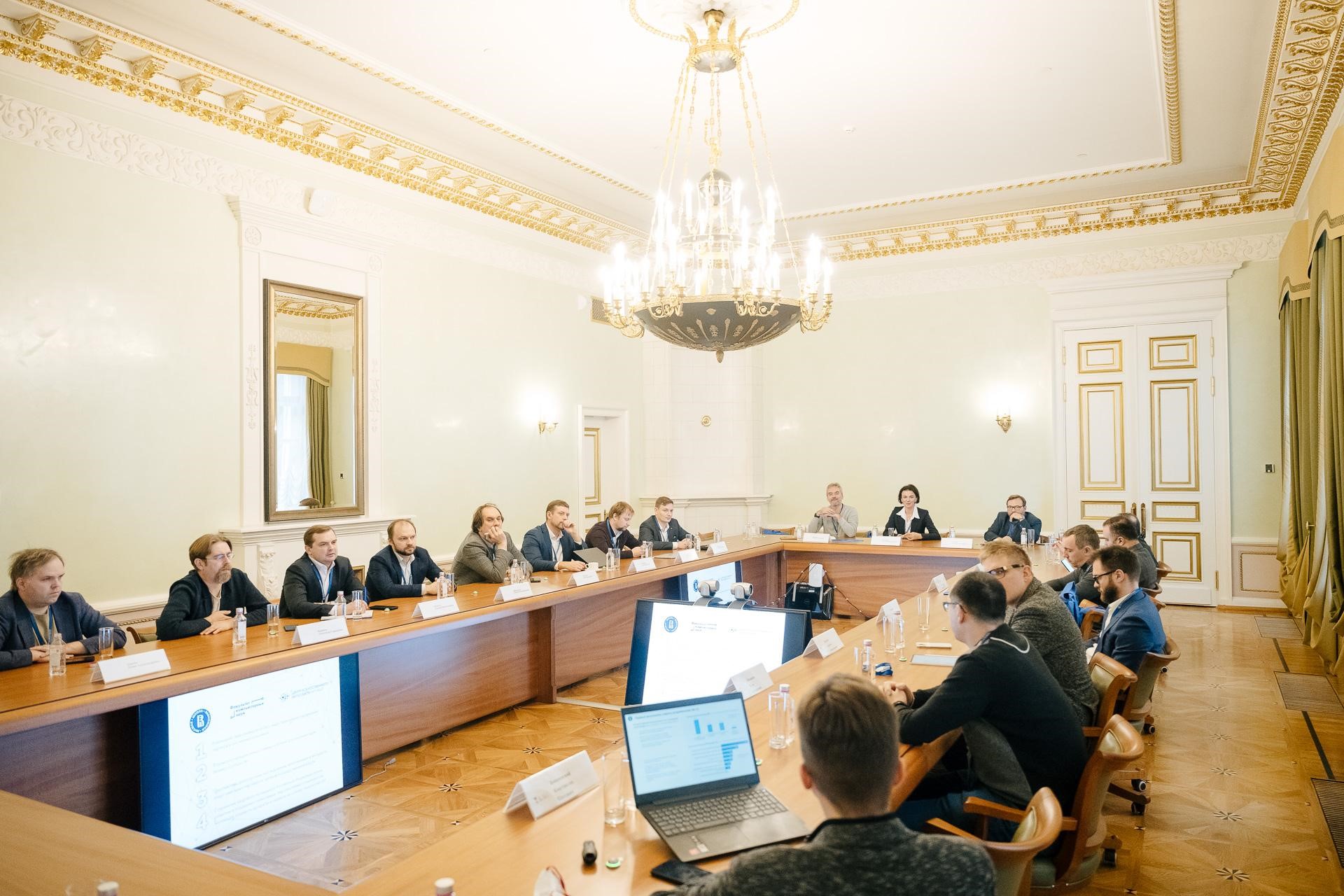
In total, over 250 participants attended ‘Fall into ML’, including students and lecturers from Moscow State University, MIPT, Plekhanov Russian University of Economics, NSU, and Mendeleev University of Chemical Technology.
The poster session format, which is a distinctive feature of international A* level conferences, is particularly interesting. Poster sessions allow young scientists to present the results of their research for open defense. Anyone can ask questions at the poster presentations, including world renowned scientists.
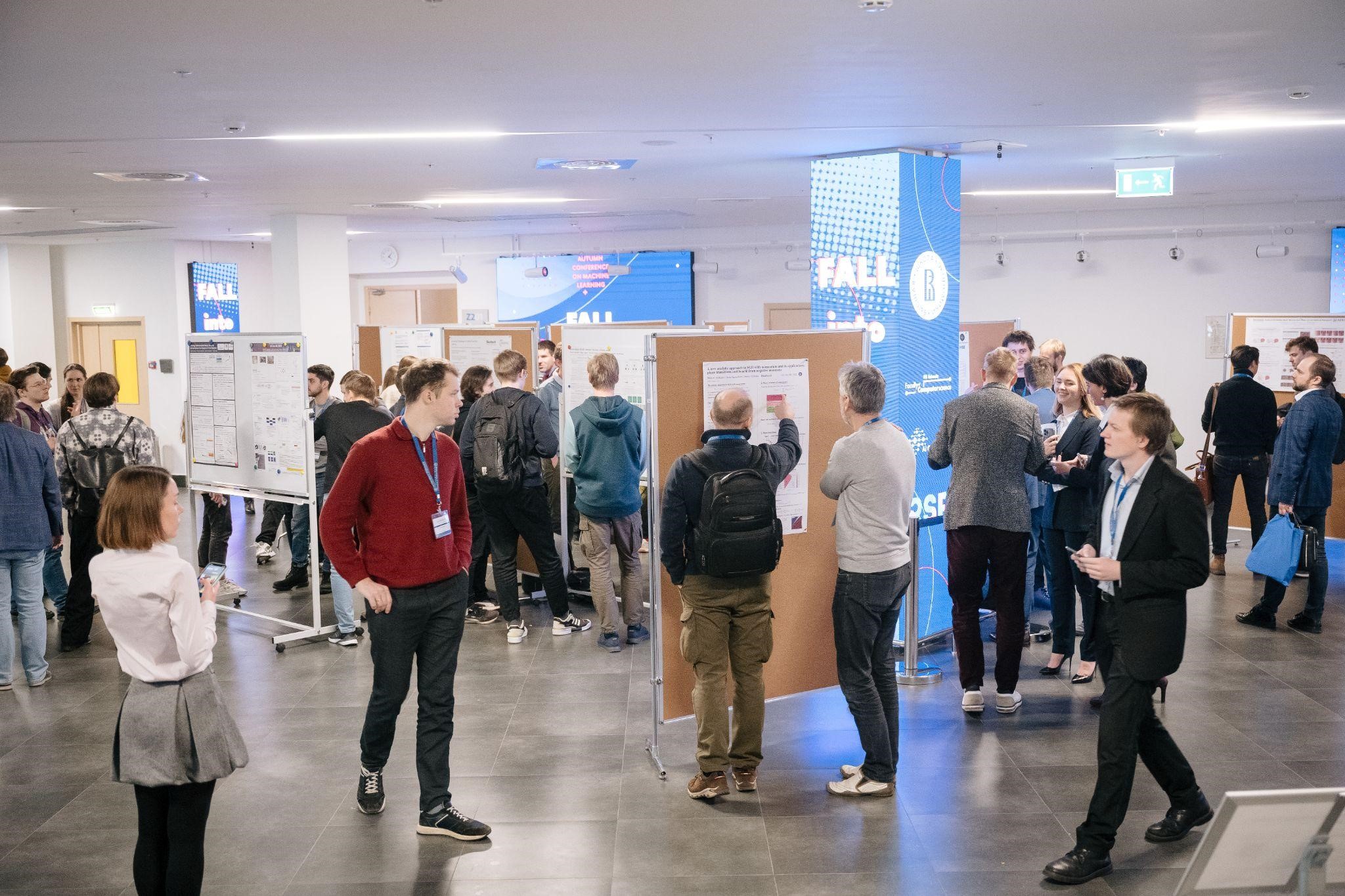
Darina Dvinskikh, Associate Professor at HSE Faculty of Computer Science, Speaker
It was a good conference. There were a lot of interesting courses and reports on the use of machine learning in various fields. I think everyone who attended learnt something useful.
Vladislav Podsadny, student of Plekhanov Russian University of Economics, participant
For me, all the reports were interesting. During the two days of school, I got a lot of useful information. I liked Alexey Naumov's lecture the most, because he knows how to win over the audience and deliver the material in a simple, but effective, way. This new information will help me in my further studies, because it’s very useful knowledge in this field.
Ivan Safonov, student of ‘Math of Machine Learning’ master's programme, participant
I liked Dmitry Vetrov's mini-course about diffusion models the most. This is a completely new approach that has significantly improved the previous results in the field of image generation. At the conference, the topics and content of many reports were new to me, but since I plan to go further in this area, it turned out to be useful for me to find out the current results and the range of tasks, as well as to communicate with the authors of the articles.
See also:
Virtual Mozart, Venture Capital Bot, and Educational Video Generation: How AI is Used at HSE University
In mid-November, HSE University hosted a meetup where faculty, researchers, and administrators presented their projects and shared experiences with using AI technologies in education and research. The meeting was part of the continuing professional development programme 'Artificial Intelligence in Education and Research.'
‘In the Future, I Expect Rapid Development of Professions Related to Prompt Engineering’
The English-language programme of HSE Online ‘Master of Computer Vision’ will change its name to ‘Artificial Intelligence and Computer Vision’ in 2024. Andrey Savchenko, the programme academic supervisor, shares how the new name will affect the programme semantics, why AI has become the main federal trend in the field of information technology, and what tasks graduates will solve.
Artificial Intelligence as a Driver of Digital Transformation
In December, the HSE Institute for Statistical Studies and Economics of Knowledge and the HSE AI Research Centre participated in UNCTAD eWeek to discuss the future of the emerging digital economy. One of the topics discussed during the conference was artificial intelligence and its applications in driving the digital transformation of industry sectors. The session was co-organised by HSE University.
HSE University Receives Highest Grant under Priority 2030 Programme
HSE University has proved its leading position in the first group of the ‘Research Leadership’ field under the Priority 2030 programme. The university has also received the highest grant for teaching digital competencies to students, demonstrating its educational leadership in the fields of digital technologies and AI.
‘The Future Lies with AI Technologies and HSE University Understands That’
At the AI Journey 2023 international conference in Moscow, a ranking of Russian universities that train the best AI specialists was published. HSE University entered the A+ leadership group, taking first place according to such criteria as ‘Demand for hiring graduates’, ‘Quality of educational environment’, and ‘Activities for the development of school education’. Ivan Arzhantsev, Dean of HSE University’s Faculty of Computer Science, spoke to the HSE News Service about how AI specialists are trained at HSE University and what plans the university has in this area.
‘Every Article on NeurIPS Is Considered a Significant Result’
Staff members of the HSE Faculty of Computer Science will present 12 of their works at the 37th Conference and Workshop on Neural Information Processing Systems (NeurIPS), one of the most significant events in the field of artificial intelligence and machine learning. This year it will be held on December 10–16 in New Orleans (USA).
Specialists from the HSE Institute of Education Confirm GigaChat’s Erudition in Social Sciences
A multimodal neural network model by Sber, under the supervision of HSE University’s expert commission, has successfully passed the Unified State Exam in social studies. GigaChat completed all exam tasks and scored 67 points.
HSE University Students Win in the AIJ Science Competition at AI Journey 2023
The International Sber Conference of Artificial Intelligence, ‘AI Journey 2023’ recently took place in Moscow. Alexander Rogachev, doctoral student of the HSE Faculty of Computer Science, and Egor Egorov, an HSE 4th-year undergraduate student became the winners of the AIJ Science competition for scientific articles on artificial intelligence that was held as part of the event. The research was carried out under the umbrella of the HSE's Laboratory of Methods for Big Data Analysis (LAMBDA).
HSE University Hosts Fall into ML 2023 Conference on Machine Learning
Over three days, more than 300 conference participants attended workshops, seminars, sections and a poster session. During panel discussions, experts deliberated on the regulation of artificial intelligence (AI) technologies and considered collaborative initiatives between academic institutions and industry to advance AI development through megaprojects.
Child Ex Machina: What Artificial Intelligence Can Learn from Toddlers
Top development teams around the world are trying to create a neural network similar to a curious but bored three-year-old kid. IQ.HSE shares why this approach is necessary and how such methods can bring us closer to creating strong artificial intelligence.


